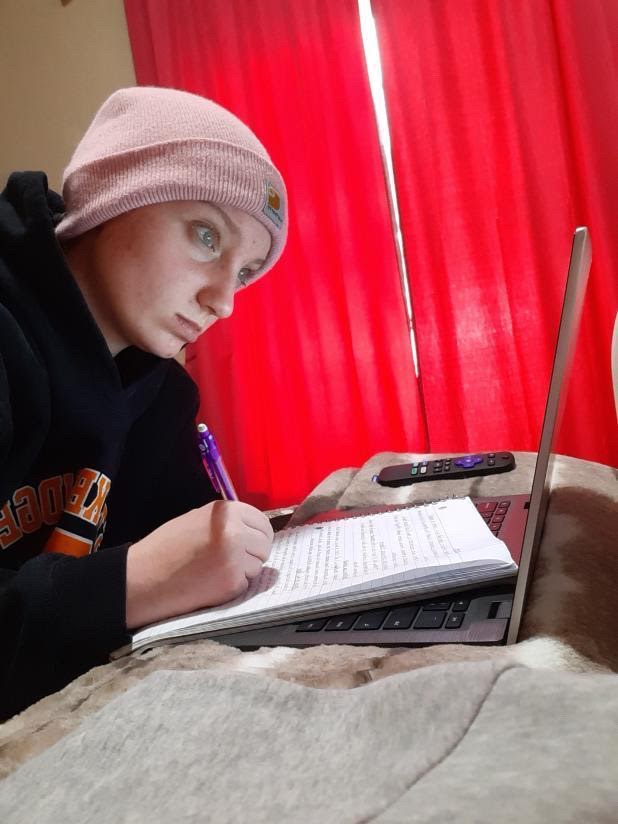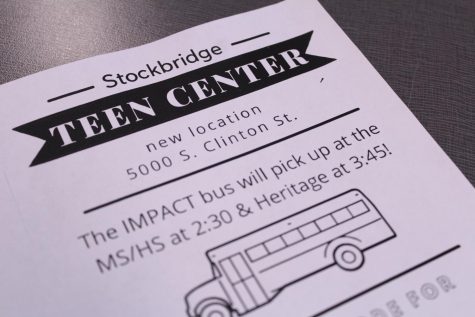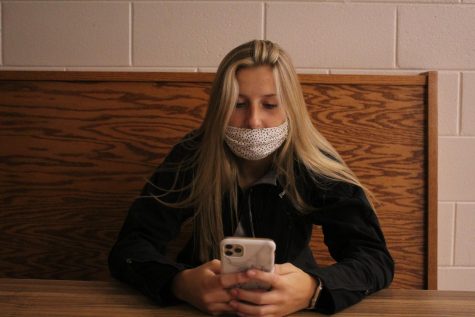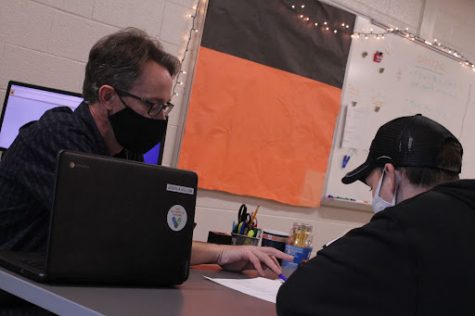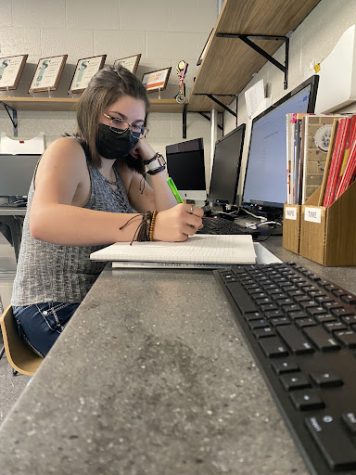Students struggle online
Limited wifi, increased workload leave some virtual students falling behind
Kalysta Connolly11 works on notes in World History class. She tries her best to get all her homework done on time.
Some students are struggling to keep their grades up when being online and they are trying hard to bring them up by the end of the semester. Struggles over online access, Google Meet times and Wednesday virtual check-ins have virtual students falling behind.
Many miss the one-on-one with teachers that occurs in a regular classroom.
“It’s tough,” junior Kalysta Connolly said. “In a classroom you are focused fully on that class. Online, you get bombarded with assignments from all classes mostly at once. Assignments that likely would have been in a classroom discussion is now in writing or assignments only. It makes it way more overwhelming.”
It is not just the students either—the parents are struggling as well, trying to keep up with every assignment their child is given and helping them not get distracted or behind. With that, the parents also have work on top of it all.
“I think a big thing students are having trouble with is finding motivation each day,” Katie Tervo, a parent to a high school student, said. “I find that it’s very important to make sure they do what they need to do, constantly reminding them or asking what they need to get done and making sure they have a plan to get stuff done.
Tervo checks the parent portal every day or few days and suggests that it “can help parents to know if their kids are on track or falling behind. I try to encourage them to get stuff done now so it’s not overwhelming later.”
Roughly 70 percent of the student population came back to school face-to-face in mid January. Others who will continue online won’t be able to get that one-on-one instruction, which might be hard.
Senior Trystyn Ellsworth said, “Some teachers are good at helping you stay on task but others just keep on piling work.”
Educators keep working to improve the negative things about online schooling. Kayla Miller from Michigan Live reported that, “Turning off the camera allows the child to absorb information auditorily without the strain of trying to read facial expressions on a computer,” Bocknek said. “Children using their own webcam are also watching themselves in addition to scanning others’ faces, which is not something people normally do in conversation.”

I think of myself as a confident person, a person that takes risks if need be. I also think of myself as someone you can rely on if you need someone to...



